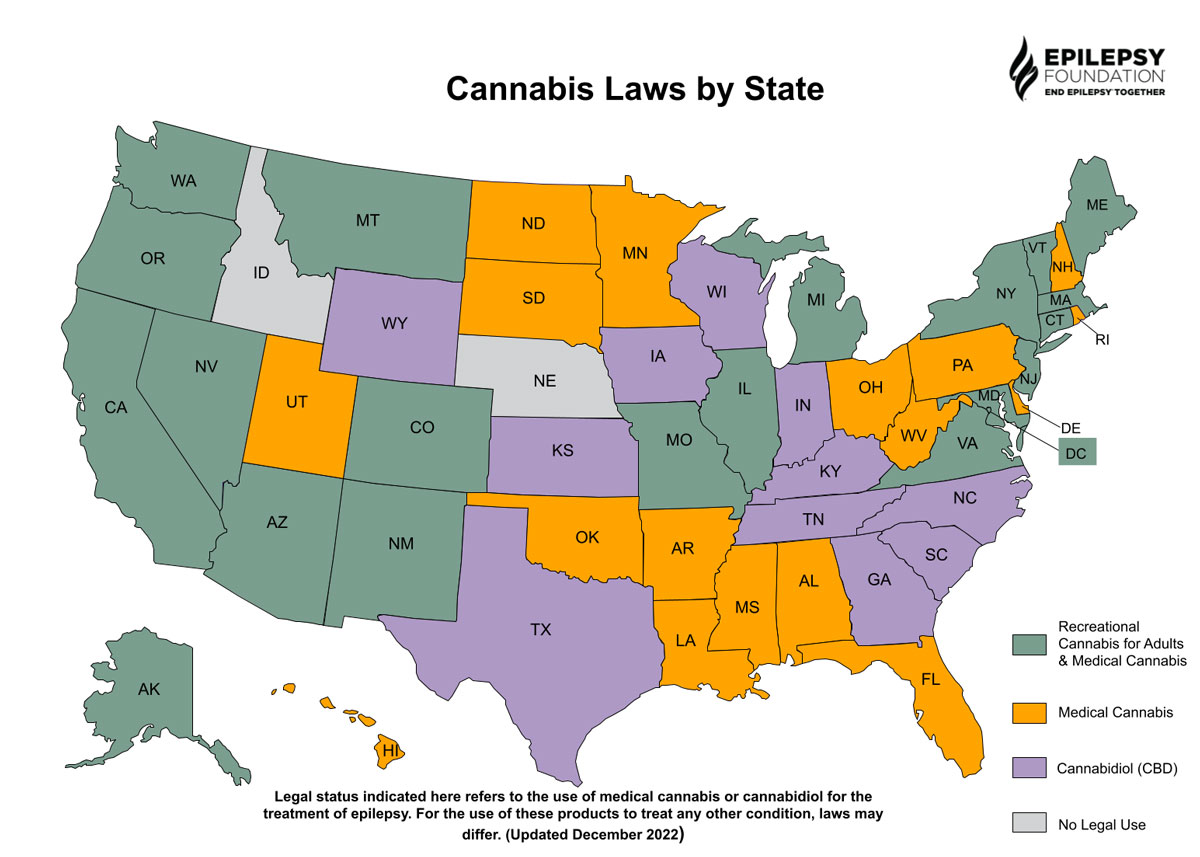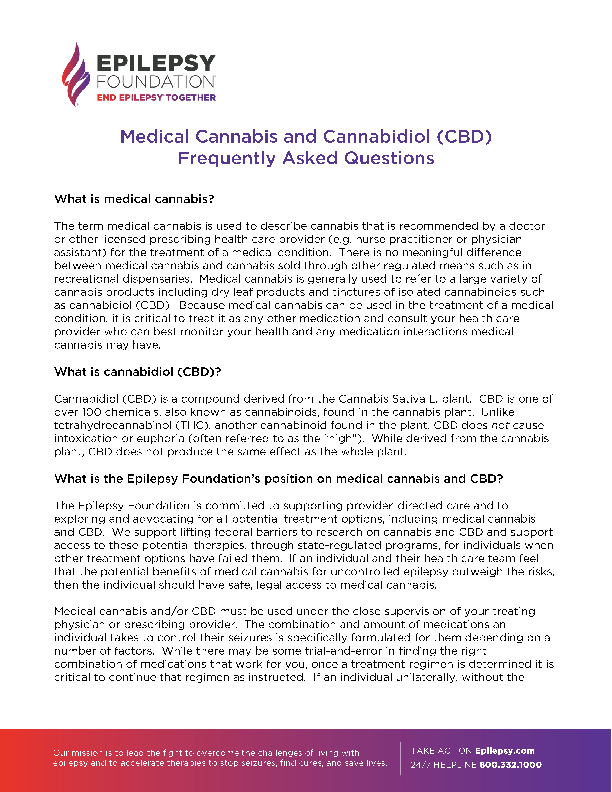Advocacy: Medical Cannabis CBD

While not everyone with epilepsy should or would consider medical cannabis or cannabidiol (CBD) as a treatment option, some people living with uncontrolled seizures have reported beneficial effects and reduced seizure activity when using medical cannabis, especially strains rich in CBD. Further research is needed on the effects of medical cannabis on epilepsy, but when recommended by a treating physician, medical cannabis may be the best alternative for some individuals living with drug-resistant epilepsy and uncontrolled seizures.
Access to medical cannabis will support increased research efforts and allow individuals who have failed to gain seizure control an option for treatment.
Learn More:
Get Involved in AdvocacyPosition
The Epilepsy Foundation is committed to supporting physician-directed care, and to exploring and advocating for all potential treatment options for epilepsy, including cannabidiol (CBD) oil and medical cannabis. We support safe, legal access to medical cannabis and CBD if a patient and their health care team feel that the potential benefits of medical cannabis or CBD for uncontrolled epilepsy outweigh the risks.
We also support breaking down barriers to research to better understand the potential therapeutic benefits and harms of cannabis. The Epilepsy Foundation does not have a policy position on adult use recreational cannabis programs – however, under these laws, individuals and their physicians are able to work together to access cannabis to control seizures when medically appropriate.
Status
On December 2, 2022, President Biden signed the Medical Marijuana and Cannabidiol Research Expansion Act into law. The new law will make it significantly easier to conduct medical research on cannabis in the United States. The Epilepsy Foundation strongly supported the bill and looks forward to its implementation.
Importantly for people with epilepsy, the new law also clarifies that physicians may discuss the benefits and risks of cannabis as a medical treatment with their patients without violating the Controlled Substances Act. Many physicians had been reluctant to discuss cannabis and CBD use with their patients for fear of legal repercussions. We hope that this change will result in improved communications between people with epilepsy and their health care providers, resulting in improved treatment and outcomes.
As of November 2022, 48 states and the District of Columbia have legalized either the recreational or medical use of cannabis, or allow access to CBD, on the local level. Under federal law, cannabis remains a Schedule I controlled substance, and illegal to use, buy, sell, or possess. The restrictive Schedule I status also creates a significant barrier to conducting medical research on the benefits or harms of cannabis as a treatment option for epilepsy and seizures as well as other complex, chronic conditions.
On February 2, 2022, Mississippi became the 37th state to adopt medical cannabis laws when Governor Tate Reeves signed SB 2095 into law. During the November 2022 elections, Arkansas, Maryland, Missouri, North Dakota, and South Dakota held referendums on adult recreational use of cannabis. Maryland and Missouri voters approved the measures, but Arkansas, North Dakota, and South Dakota voted it down.

Cannabis Laws by State (Updated December 2022)
Learn More:
Get Involved in AdvocacyResources
Epilepsy Centers
Epilepsy centers provide you with a team of specialists to help you diagnose your epilepsy and explore treatment options.
Epilepsy Medication
Find in-depth information on anti-seizure medications so you know what to ask your doctor.
Epilepsy and Seizures 24/7 Helpline
Call our Epilepsy and Seizures 24/7 Helpline and talk with an epilepsy information specialist or submit a question online.
Tools & Resources
Get information, tips, and more to help you manage your epilepsy.





